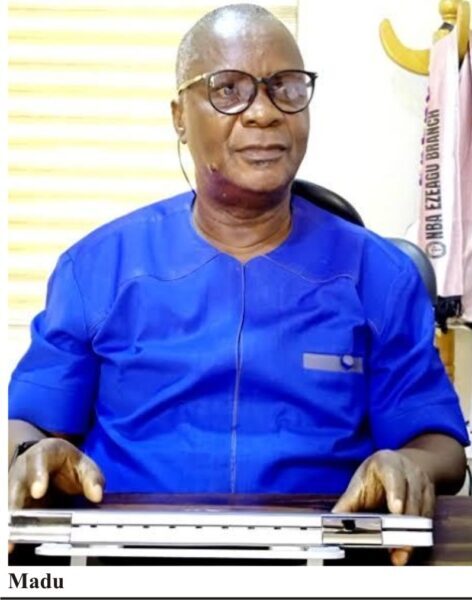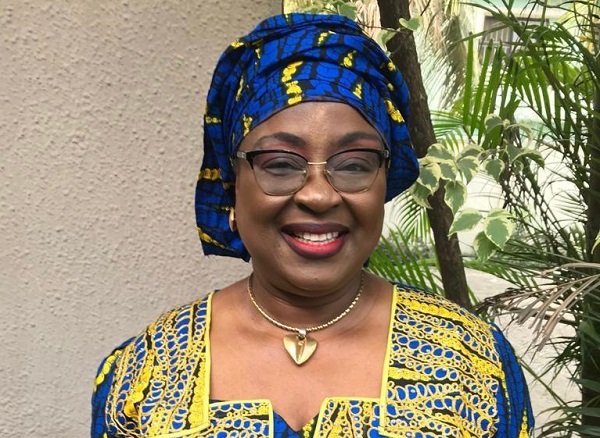Over Reliance On Crude Is Bane Of Nigeria’s Economy – Obiora Madu
Dr. Obiora Madu, founder and chairman of Multimix Academy, an export consulting firm, says the persistent neglect of agriculture and continuous reliance on crude oil is the reason why Nigeria is where it is now economically. He was on Arise Television.
“It’s a pity that crude is dominating trade in Nigeria with 75 per cent of exports. It’s so sad that we are where we are because at independence agriculture was generating 93.7 per cent of foreign exchange for this country. Then came oil. That’s why we are where we are today,” he said during an Arise News programme.
“Without oil we can really do a lot better than we are doing at the moment. Nigeria is like a man who has a tap in his parlour. If he pushes a bucket under it and turns it on, dollar will start flowing, and then you ask him to go to into the farm to soil his hand, that is where we are.
“You will be surprised to know there is a proposal with a provision for certain percentage of oil proceeds to be spent to develop non-oil. That law has never seen the light of the day. If we have done that, non-oil would have moved up, almost at par with oil. Oil would have just been a matter of supplementing what we are doing,” Dr. Madu said.
According to him, Nigeria will never be serious with diversification of the economy as long as oil continues running, adding that it was very unfortunate that God blessed the country with such a product, the biggest in Africa and probably in most parts of the world.
Madu described the Nigerian National Oil Company Ltd as the most opaque organization. “The problem is that when an organization is structured to fail, even a genius as chief executive will not be able to make it to work. Look at National Oil of Malaysia, every minute you will know the quantity of oil that is leaving the country. Do we know every day the crude export, the quantity that left and the amount that we received? I think that is what the problem is. It is very unfortunate,” he said.
On Dangote Refinery
With Dangote Refinery taking over we should have more transparency on consumption and pricing. We really never had correct figures. I just read the statement from Dangote concerning the statement issued by the spokesman of NNPC and all that. In fact at times I just pity Dangote. Here is a big opportunity for us to get out from the mess we have been and yet we are just toying with it.
On non-oil products
We are not serious about non-oil. Watch the trend in Nigeria, when oil prices drop you hear everybody jump up and start shouting about diversification. As soon as the oil price pushes up everybody goes to sleep again. So if you are not consistent and deliberate, you cannot achieve a good result. That is the challenge we have. We are the largest producer of four to six agric products. Check the export market you won’t find us like cashew nut, shea nut. We do 60 percent of the world shea nut. If you look for the exporters, you find Burkina Faso, Ghana, Mali. It’s so unfortunate. People have to move products from Ghana to be able to ship. One of the biggest things is that we are de-marketing ourselves. In the international market you must prove who you are. Your integrity quotient must be very high. That is part of the problem.
As an exporter, you call somebody and they ask you where you are calling from. Before you finish the word Nigeria, the person has concluded on you. Exporters are working a very tight rope getting international markets. When the people agree they won’t give you letter of credit. They say ship on open or open account and the rest of it. You know how dangerous it is when you are dealing with people you don’t know.
Transitioning to finished goods
There is no problem with any of our commodities. There is no problem with adding value. The problem is with us as a people. I will tell you why. In 1990, I was still in the banking sector; there was an ADB export stimulation loan guaranteed by government. The whole idea was value addition. At one time raw cocoa was banned. But it was quickly lifted. The only one that is banned as raw now is palm kernel. Forty one companies were set up from those loans. As we speak 41 of them are dead. When you ship raw materials you ship jobs and we are looking for employment. Manufacturing in Nigeria is a problem of its own but it is going on. Apart from electricity, logistic infrastructure is the real killer both for manufacturers of other goods and those who want to get into value addition. 12 incentives were documented when NEPC was set up. Only Export Expansion Grant (EEG) survived with constant challenges. The other 11 never worked. Elsewhere in the world exporters are the geese that lay the golden egg. They provide them incentives, create enabling environment and do a whole lot of other things for them. But here exporters are practically on their own.
Exporting Services
Since 2004, I have been a member of the Services Export Group in ITC in Geneva. In 2006, ITC got my services to develop the first document of Nigeria’s services export capacity. Some years later Commonwealth got somebody to develop a document on services export strategy for Nigeria. In 2015, Commonwealth got my services to do develop training package for Nigerians in services export. After the development, we did some pilot training and then Commonwealth said Nigeria here you are. You guys can take it from here. That’s where it has been since then. With our 60 per cent population of youths, when Adesina was minister, there was a research on which industry will give us the largest number of jobs within the shortest possible time. They were three. One was out sourcing, which is services; construction and entertainment. We had two meetings. The third one never happened. Look at what India gained from out sourcing and is still gaining. Most of the least developing countries are doing better in services than in products.








